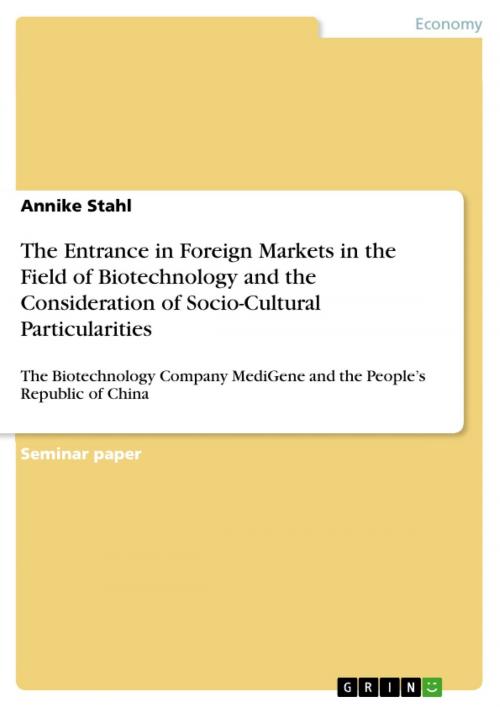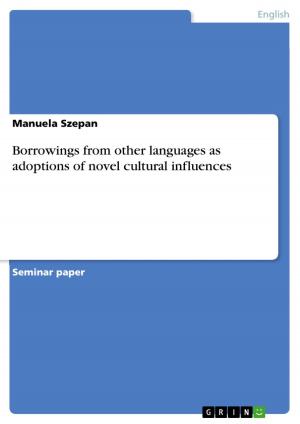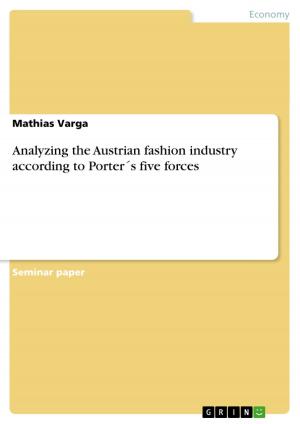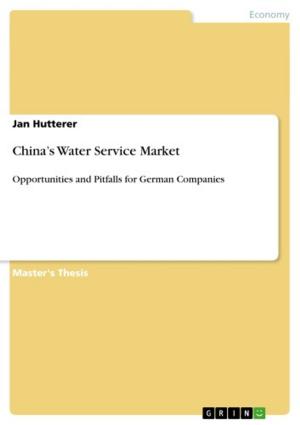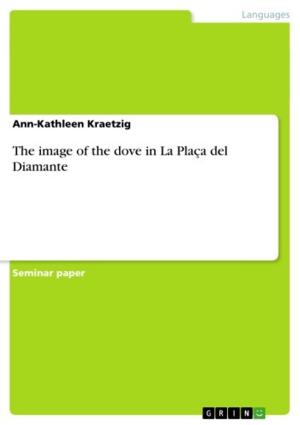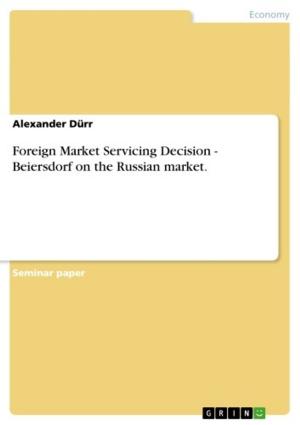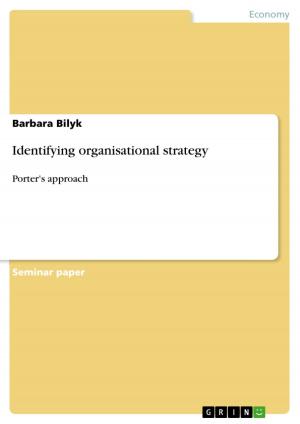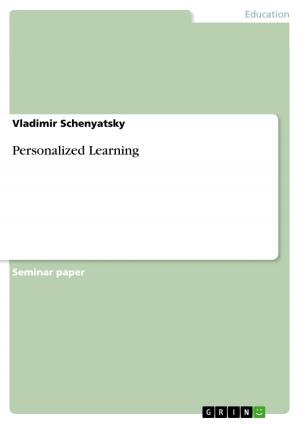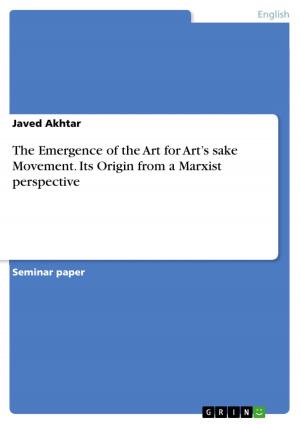The Entrance in Foreign Markets in the Field of Biotechnology and the Consideration of Socio-Cultural Particularities
The Biotechnology Company MediGene and the People's Republic of China
Business & Finance, Management & Leadership, Management| Author: | Annike Stahl | ISBN: | 9783640587117 |
| Publisher: | GRIN Publishing | Publication: | April 7, 2010 |
| Imprint: | GRIN Publishing | Language: | English |
| Author: | Annike Stahl |
| ISBN: | 9783640587117 |
| Publisher: | GRIN Publishing |
| Publication: | April 7, 2010 |
| Imprint: | GRIN Publishing |
| Language: | English |
Seminar paper from the year 2010 in the subject Business economics - Business Management, Corporate Governance, grade: 'noch nicht bekanntgegeben', Baden-Wuerttemberg Cooperative State University (DHBW), language: English, abstract: For many years now China represents one of the most popular target markets of the internationalisation of enterprises. The speed of economic development and social changes of China during the last years is indeed enormous and far above average. Today China is already the second largest economic nation and for many years receives the highest foreign investments worldwide. In 2002 China became Germany's biggest Asian trading partner taking the leadership over from Japan. Additionally 2012 shall be the German-Chinese cultural year. A comparable rapid change and development can be seen in the field of biotechnology. Over the last few years biotechnology became more and more important, popular and underwent a tremendous boom. Pharmaceutical industry is a sunrise industry, especially the biopharmaceuticals, which just starts its large-scale industrialization process. Many large biotech and pharmaceutical companies are strengthening their presence worldwide and have already entered the Chinese market - Roche, Novartis, GlaxoSmithKline and Pfizer, to name but a few. Among these as well BASF operates a joint venture together with the Chinese enterprise Sinopec for the production of high-quality chemical products and polymers. This seminar paper evaluates possible market entry strategies for the small and medium enterprise MediGene AG into China taking account of socio-cultural particularities. In the second chapter this seminar paper gives an insight into the characteristics of the Chinese culture and the biotechnological market in the People's Republic of China. The subsequent third chapter contains information about the products and today's internationalisation of MediGene. The fourth chapter is addressed to the different market entry strategies into China, which MediGene could choose. Finally, the seminar paper comes out with a conclusion and recommendation for MediGene considering the won findings.
Seminar paper from the year 2010 in the subject Business economics - Business Management, Corporate Governance, grade: 'noch nicht bekanntgegeben', Baden-Wuerttemberg Cooperative State University (DHBW), language: English, abstract: For many years now China represents one of the most popular target markets of the internationalisation of enterprises. The speed of economic development and social changes of China during the last years is indeed enormous and far above average. Today China is already the second largest economic nation and for many years receives the highest foreign investments worldwide. In 2002 China became Germany's biggest Asian trading partner taking the leadership over from Japan. Additionally 2012 shall be the German-Chinese cultural year. A comparable rapid change and development can be seen in the field of biotechnology. Over the last few years biotechnology became more and more important, popular and underwent a tremendous boom. Pharmaceutical industry is a sunrise industry, especially the biopharmaceuticals, which just starts its large-scale industrialization process. Many large biotech and pharmaceutical companies are strengthening their presence worldwide and have already entered the Chinese market - Roche, Novartis, GlaxoSmithKline and Pfizer, to name but a few. Among these as well BASF operates a joint venture together with the Chinese enterprise Sinopec for the production of high-quality chemical products and polymers. This seminar paper evaluates possible market entry strategies for the small and medium enterprise MediGene AG into China taking account of socio-cultural particularities. In the second chapter this seminar paper gives an insight into the characteristics of the Chinese culture and the biotechnological market in the People's Republic of China. The subsequent third chapter contains information about the products and today's internationalisation of MediGene. The fourth chapter is addressed to the different market entry strategies into China, which MediGene could choose. Finally, the seminar paper comes out with a conclusion and recommendation for MediGene considering the won findings.
